Isis in Libya: How Boko Haram jihadis are flocking to join Daesh's holy war in North Africa
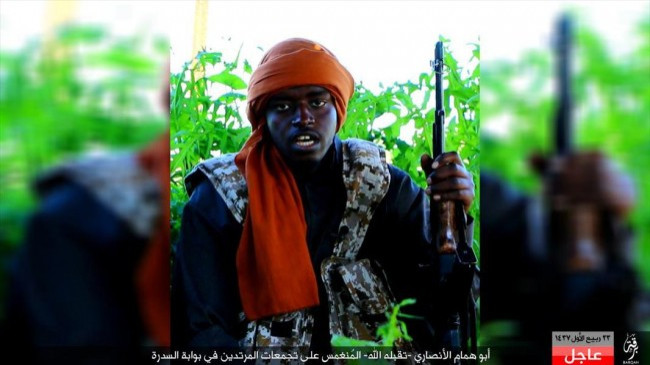
On the shores of the Mediterranean two vast provinces of the Islamic State (Isis)'s overseas terror empire intersect in the Libyan town of Sirte. In the former Qaddafi stronghold, senior Daesh commanders from the Levant rub shoulders with extremists from across Sub-Saharan Africa and foot soldiers from Nigeria's Boko Haram.
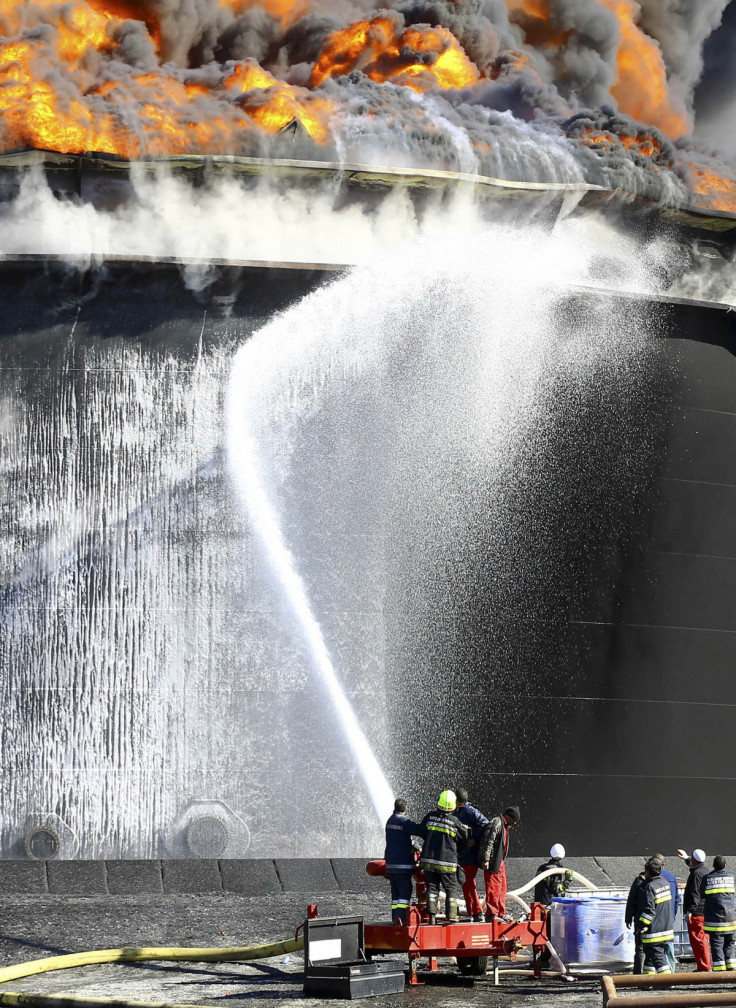
While a US-led coalition closes in on Isis across its territories in Iraq and Syria, in Libya the Islamic State has grown from a force of 3,000 fighters to 6,500 in just three months, according to the UN and the Pentagon.
The terror group has carried out audacious suicide attacks in Libya's cities of Tripoli, Benghazi, Zliten and Misrata, killing scores, and clashed with government aligned militias at crucial oil installations.
The rapid expansion of the Islamic State into the anarchy of post-Gaddafi Libya has been fuelled by the arrival of hundreds of Boko Haram fighters. The value of the jihadis from Sub-Saharan Africa to the Islamic State operation in Sirte is such that it hires exclusive people smugglers to swiftly transport the militants directly to the terror group's defacto Libyan capital.
An activist in the southern Libyan town of Sebha, a crucial hub in the illegal trafficking routes which stretch from Libya across Africa, told IBTimes UK the number of Boko Haram fighters in Sirte could be as high as 1,000.
Speaking on condition of anonymity, the activist, who has monitored Libya's illegal cross border trade since 2011, based his estimation on information received from people smugglers as well as first-hand accounts from the city of Sirte.

He explained Isis in Libya did not use regular trafficking routes to transport fighters and used its own, hand-selected smugglers.
"There are a number of smugglers that don't actually work within the human smuggling network, they are not well known. They are the ones who are bringing in the Boko Haram fighters and taking them to Sirte," the activist said. "These fighters don't go to the same regular stopping places as the migrants," he added.
The activist outlined the regular route taken by economic migrants into Libya. He explained they move up from Niger to Qatrun and then onto Sebha, where they often stayed for a couple of days in smugglers' compounds. The Boko Haram fighters, he explained, were expedited and spent little time in the south before being moved up to Sirte.
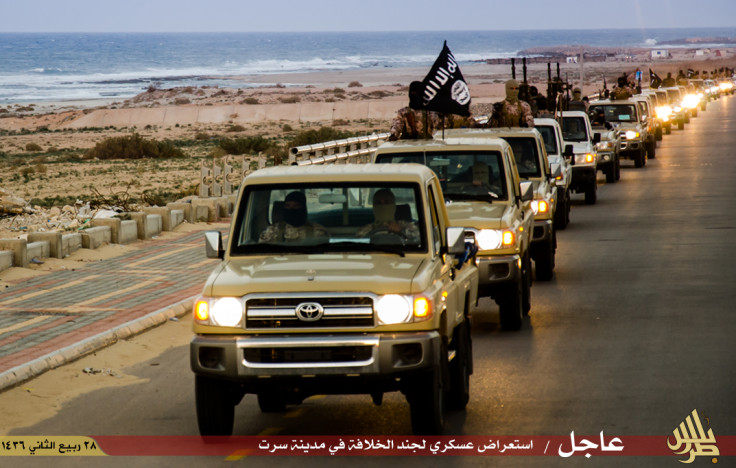
Western nations, which are considering an armed intervention in Libya to counter the threat from the Islamic State, is aware of the explosive nature of the Isis threat in Libya because of the added sub-Saharan dimension.
"Libya has become a magnet for individuals not only inside of Libya, but from the African continent as well as from outside," John O. Brennan, the director of the CIA., told a Senate panel in February, according to the New York Times.
French troops stationed in Northern Niger, part of a wider operation to stop the expansion of the Jihadist threat from Mali, have looked to block the flow of fighters into the Libya. Mali's own jihadi crisis was precipitated by the proliferation of arms in Libya in 2011 during the country's revolution. The Pentagon has advocated spending $200m (£140m, €181m) to train troops in north and west Africa to combat the wider threat.
Britain and Italy have suggested a joint force of 6,000 troops could be sent to Libya to spearhead the fightback against the Islamic State under the auspices of a unity government.
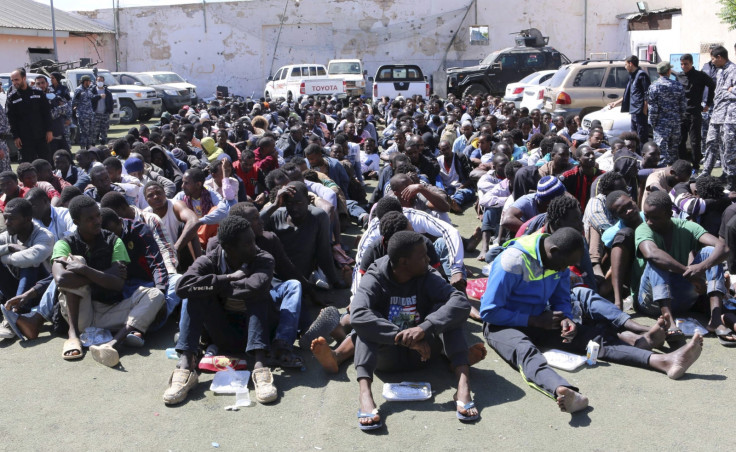
However analyst and Senior Fellow at the Atlantic Council's Rafik Hariri Centre Hafed al-Ghwell told IBTimes UK the move would suck fighters from across Africa into Libya and fan the flames of radicalism across the continent.
"Now if western powers enter into the game, it will be a holy jihad all over Africa," he said. Al-Ghwell explained the tribal alliances which had allowed Gaddafi to rule Libya for 40 years through the Gadhadhfa tribe based in Sirte and Sebha were now being exploited by Isis.
"These tribes, more and more, as they give up on the political process are aligning themselves with Daesh," he said, using the Arabic acronym for the terror group. "A lot of them want to do so not because of ideological links but out of a sense of revenge," he added.
Ghwell said, according to well-placed sources in Sirte, fighters not just from Nigeria but also Chad and Niger had flocked to the coastal city. "They have been attracting a lot of fighters, a lot of weapons," he said.
A report in the Daily Telegraph, citing security sources from the central Libyan city of Misrata, has said the Isis offers $1,000 straight up to fighters from neighbouring countries to join their ranks.
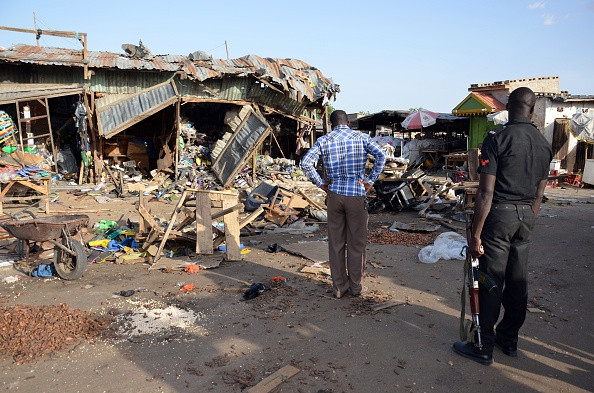
Ahmed Umar Bolori, an activist in Boko Haram's heartland of Maiduguri in the militant group's heartland of Borno State, told IBTimes UK the same economic factors that led fighters to join the radical group were also pushing them to Libya.
"You will fight if they give you money," he said. "This is a terrible disease which has worsened with the economic conditions. There are no opportunities and that makes [young people] more likely to join radical groups," he explained.
Bolori said Borno State's geographical position with borders on neighbouring Niger, Cameroon and Chad had not only facilitated the expansion of Boko Haram but also made it easier for its fighters to reach Libya.
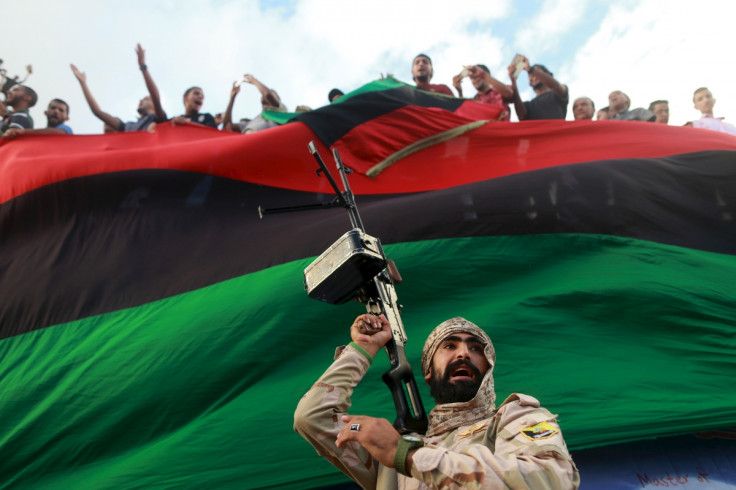
"There is a lot of businesses that operate between Libya and Nigeria. They will follow the routes that bring goods to or from Libya to Nigeria," he explained, adding migrants wishing to travel to Libya would pay truck drivers exporting goods like cement to stow aboard.
Bolori also said a western intervention in Libya would draw in fighters from elsewhere in Africa. He said militants would be motivated by inevitable and "uncalled for" civilian casualties and the resulting conflict would reinforce a cycle of deprivation and radicalisation.
Correction: This article previously stated Ahmed Umar Bolori was a former Boko Haram fighter. He is the coordinator of the Fa'ash Foundation and the Partnership Against Violent Extremism which works with youth at risk of radicalisation in Nigeria.
© Copyright IBTimes 2025. All rights reserved.






















